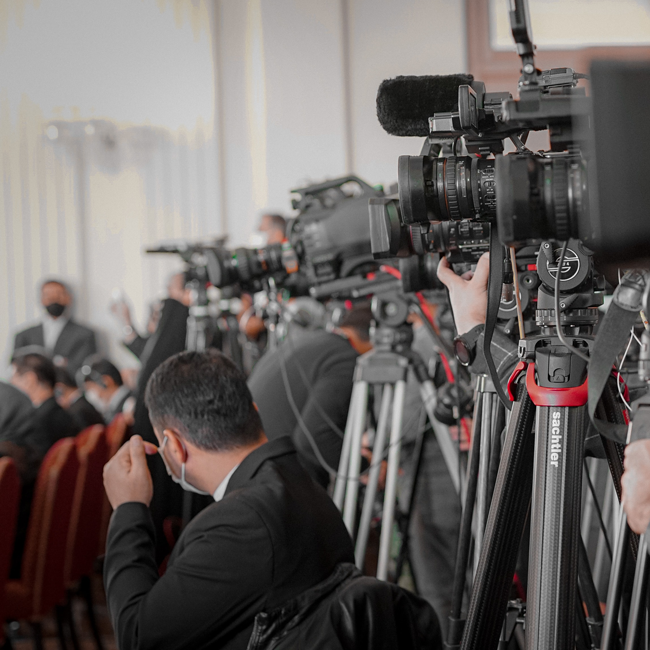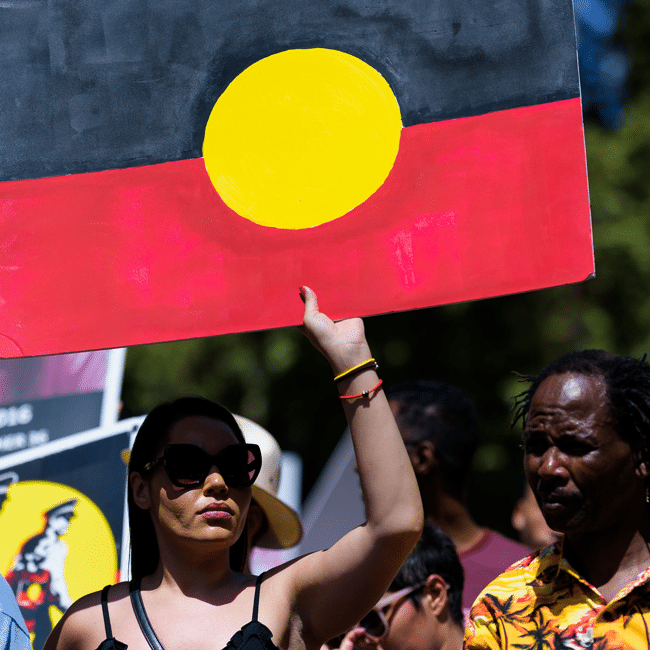
The limits of ethical protest on university campuses
Opinion + AnalysisPolitics + Human Rights
BY Tim Dean 14 MAY 2024
Ethical protest is a crucial element of liberal democracy. But protesters and universities must tread a fine line to allow good faith expression while preventing unethical forms of speech.
In parallel to the conflict raging in Gaza, another front has emerged in the form of pro-Palestine protest camps at universities across the United States and Australia.
The protesters have called for a ceasefire in Gaza and for their host universities to sever any connections with defence companies that support Israel’s war effort, including divestment of stock in any companies with ties to Israel. Meanwhile, Jewish lobbies have claimed that the protests are stoking antisemitism and compromising the safety of Jewish students.
In the US, these camps have triggered a significant, and occasionally violent, backlash from authorities. Both Columbia University and the University of California, Los Angeles have called in police and riot squads to break them up, leading to hundreds of arrests. Australian campuses have so far refrained from such a forceful response, but there are increasing calls from some voices, to close them down.
How should universities and other authorities respond to these protests? What kinds of protest are deemed acceptable? Which cross the line and should be shut down?
Ethical protest
Every citizen of a liberal democracy has the right to protest against injustice. But protesters and authorities must tread a fine line between allowing justified forms of expression while preventing forms that incite, dehumanise, vilify or cause undue disruption or damage to private or public property.
But what counts as incitement when slogans are interpreted in different ways by different people? What constitutes vilification, when many in the Jewish community perceive criticism of Israel as being antisemitic? Is it undue disruption if a camp prevents uninvolved students from attending their classes? Can a protest movement prevent fringe elements from coopting it to promote extreme views or violence?
These are difficult questions to answer for both protesters and universities. However, a better understanding of the limits of ethical protest can guide those running the camps to ensure they remain within the bounds of what is justifiable speech, and authorities, so they don’t end up suppressing legitimate forms of expression.
In good faith
A crucial feature of ethical protest is that protesters are acting in good faith, which means they are acting with the intention to call out what they genuinely believe to be an injustice.
This means the protesters need to have just cause, and ensure their expression doesn’t stray outside of this justification. In the case of the pro-Palestine camps, there are arguments that can provide just cause, including statements of concern from the United Nations, governments and other world leaders about the impact that the conflict is having on innocent civilians and the lasting damage to infrastructure that could harm future generations of Palestinians who played no part in Hamas’s terrorist attacks of October 2023.
However, there have been some pro-Palestine protesters who have stepped outside of bounds of this just cause, such as threatening Jewish students or saying Hamas deserves “unconditional support”.
A major challenge for the pro-Palestine camps is to keep emotions, especially outrage, in check. This is because justifiable outrage and heated emotion against injustice can easily tip over into calls for unjustified retribution against the perceived wrongdoers. While protesters may not intend to carry out any hyperbolic threats they express verbally, they can still service to threaten, intimidate and dehumanise. A sense of solidarity with one’s cause can also lead people to refrain from criticising problematic views or actors within their own “tribe” for fear of appearing disloyal.
Universities and other authorities are right to clamp down on any individuals who engage in such bad faith forms of expression. However, if protest leaders clearly demonstrate that they repudiate violence and dehumanising claims, and actively police their own ranks, then the universities ought to draw a distinction between the protest movement as a whole and individuals who overstep the line.
Interpretation
Bad faith expression is complicated by ambiguous slogans, such as “intifada” or “from the river to the sea”. Many people interpret the former as a call for resistance, while others associate it with the Palestinian uprisings starting in the 1980s. And some interpret the latter slogan as a call for peace within the region while others hear it as a call for the elimination of the Israeli state.
It is inevitable that symbols will be interpreted in different ways, and it is impossible to ensure that a symbol will only have one meaning. It’s also impossible to prevent fringe elements from appropriating a symbol and potentially tainting its meaning.
However, protest organisers can be clear about the intended meaning of symbols, promote good faith interpretations and suppress their use when they overstep into representing a clear threat to others. People perceiving the symbol should also exercise charity in their interpretation, rather than assuming the worst possible interpretation. Only in clear cases where the symbol is being used consistently in a bad faith manner should authorities step in to suppress its use.
Language matters
Language that is critical of the Israeli government has also been interpreted by some as being inherently antisemitic, and often such criticism has been laced with antisemitic sentiment. However, it is possible in principle to be critical of the Israeli government and its policies without being antisemitic. Were that not the case, then a significant proportion of the Jewish population of Israel would itself be deemed antisemitic due to its strong opposition to the current government’s policies. It is also possible to condemn terrorism and Hamas’ October 7 2023 attacks against civilians and also condemn the scale of collateral damage in Gaza as a result of the Israeli offensive.
It is important for those critical of the Israeli government to be clear in their use of language to not imply any antisemitic sentiment, just as it is important for those listening to exercise charity in how they interpret such statements.
Disruption
Many protests cause disruption. Indeed, disruption is sometimes a means to draw attention to an issue that might be otherwise overlooked by the public. However, ethical protest requires that the organisers minimise their impact on bystanders, especially those who are not responsible for the injustice being protested.
If the disruption becomes disproportionate, or it tips over into serious property damage, then authorities can be justified in placing restrictions on the protest and prosecuting any individuals who are involved in damaging acts. However, authorities must be very careful in how they do so, as targeting the entire protest can end up suppressing legitimate speech and can also backfire, causing more disruption or damage.
More space for protest, not less
Often the most prudent response to a protest is for universities to give the protesters more space for expression, not less. Despite the demands issued by many protesters, one core goal is often simply to be heard and acknowledged. Even if the other demands, such as divestment, are not met, protesters may still feel satisfied if they are given the space and respect to be seen and heard.
If universities give the protesters a platform to express their good faith arguments – and equal space for others to oppose them in good faith – and they can manage it safely, then it can take a great deal of pressure off the protest movement, which might otherwise lash out in more destructive ways.
It is also crucial that the protests do not turn violent. One trigger for such violence is overly forceful policing, as we have seen in the United States. By increasing the pressure on protesters, especially if that pressure is exerted by police, who are trained to use force when necessary to achieve their objectives, then protesters can lash out or act in self-defence. This can, in turn, motivate an even more forceful crackdown, leading to a spiral that can end in violence or riots. Better to take the pressure off and give the protesters the space to act peacefully and in good faith rather than set their backs against the wall.
It is impossible to guarantee that any protest will unfold entirely without cost or error. But as long as the protesters are acting in good faith, with just cause, and if they police their own members to prevent unethical behaviour, then universities ought to give the protesters the space to do so peacefully and with minimal impact.

Ethics in your inbox.
Get the latest inspiration, intelligence, events & more.
By signing up you agree to our privacy policy
You might be interested in…
Opinion + Analysis
Politics + Human Rights
Antisocial media: Should we be judging the private lives of politicians?
Opinion + Analysis
Politics + Human Rights
We are the Voice
Opinion + Analysis
Politics + Human Rights, Science + Technology
Who’s to blame for Facebook’s news ban?
Opinion + Analysis
Climate + Environment, Politics + Human Rights




